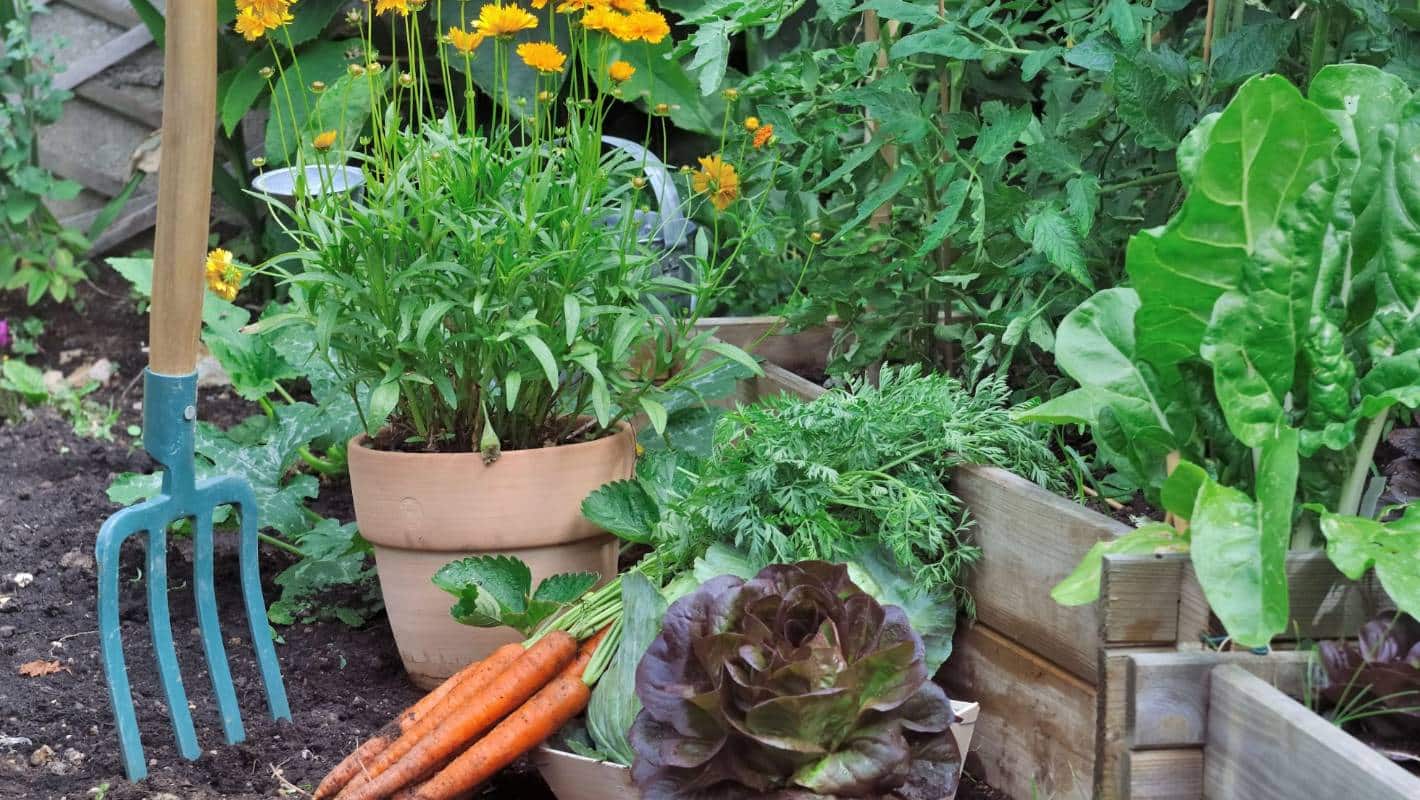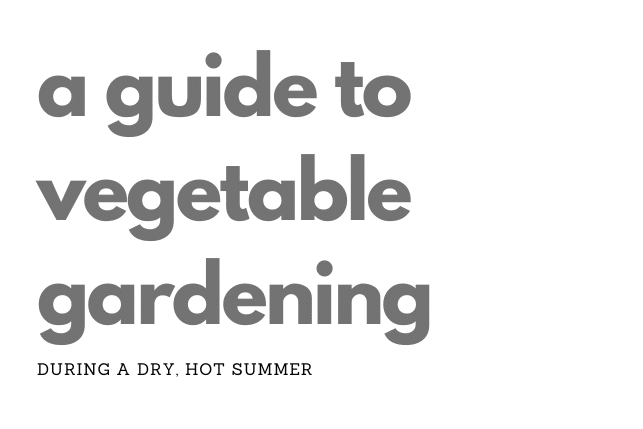

Have you successfully maintained a flourishing vegetable garden throughout the year, skillfully navigating all its challenges like a seasoned pro, but are now in a quandary about tackling this dry, hot summer? In anticipation of the conditions, we’ve crafted this comprehensive guide for your vegetable garden aimed at helping you and your crops thrive this summer rather than succumb to defeat in the heat!
Watering Strategies
Watering your vegetable garden during water restrictions can be a significant challenge. However, you can keep your garden healthy with planning and water-saving techniques. Here are some tips:
- Drip Irrigation Consider installing a drip irrigation system that delivers water directly to the base of your plants. This method reduces water waste by minimising evaporation and ensuring that water reaches the roots where needed most.
- Mulching Apply a thick layer of organic mulch, such as straw, wood chips, or compost, around your plants. Mulch helps retain moisture in the soil, reduces the watering frequency required and prevents soil temperature fluctuations.
- Watering Times Water your garden during the early morning or late evening to minimise evaporation; this also helps the plants absorb water more efficiently.
- Deep Watering: Instead of frequent shallow watering, deep watering encourages your plants’ roots to grow deeper, making them more drought-resistant. Water deeply but less frequently.
- Soil Preparation: Ensure your soil is well-prepared with organic matter to improve its water-holding capacity.
Rain Collection Tanks
Installing rain collection tanks can be a game-changer during a hot summer with water restrictions. These tanks collect rainwater from your roof. You can use this water to irrigate your garden. Here’s how to make the most of them:
- Gutter Systems: Connect your gutters to the rain collection tanks to maximise water collection.
- Filtering: Use a filtering system to ensure the water collected is debris-free.
- Drip Irrigation: Connect the rainwater tanks to your drip irrigation system to efficiently water your plants with collected rainwater.
Wetting Agents
Wetting agents can be helpful during dry spells. They improve the soil’s water-absorption capacity and distribution. Here’s how to use them:
- Application: Follow the manufacturer’s instructions for applying wetting agents to your garden soil.
- Even Distribution: Ensure you spread the wetting agent evenly to prevent water pooling and to ensure all areas of your garden benefit from the treatment.
Timers and Automation
Automating your watering system is the best way to ensure your garden gets the right amount of water at the right time. Here’s how to use timers effectively:
- Drip Irrigation Timers: Install timers on your drip irrigation system to schedule watering during the optimal hours.
- Soil Moisture Sensors: Soil moisture sensors trigger watering when the soil becomes too dry.
A Bountiful Harvest Despite the Conditions
A hot, dry summer doesn’t have to mean the end of your thriving vegetable garden. With the right strategies, you can keep your garden healthy, even during water restrictions. Implementing a combination of techniques mentioned above will ensure your crops flourish and you continue to enjoy a bountiful harvest despite the challenging weather conditions. So, gear up, plan ahead and let your green thumb shine this summer!